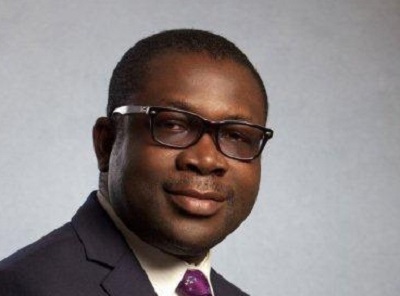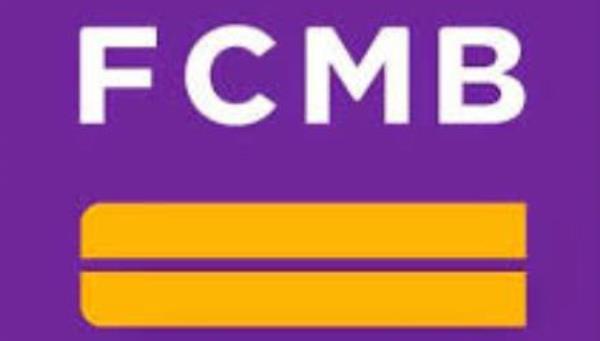E-Financial
Microsoft at Anti-Counterfeiting Roundtable, Addresses Piracy

Microsoft Nigeria, software and devices company has made recommendations on ways to address software piracy at the Anti-Counterfeiting Collaboration of Nigeria (ACC)’s 5th Roundtable.
The ACC’s 5th Roundtable in conjunction with the International Trademarks Association (INTA) took place in Lagos, with Microsoft as a sponsor.
The ACC is the umbrella body for intellectual Property Rights (IPR) legalization and related issues in Nigeria with membership spanning across all sectors including the Intellectual Property Lawyers Association of Nigeria (IPLAN).
Discussions during the session centred on piracy/counterfeiting as a major concern which cuts across varied goods, products and industries ranging from entertainment, IP/software, textiles, dairy, pharmaceuticals etc.
The discussants noted that transnational lack of borders of the internet makes the unlawful copying and distribution of pirated products, services and designs at a global scale very easy but its enforcement difficult given the difficulty of ascertaining where the infringement took place whether on the infringer’s computer, the server and in which country.
Ijeoma Abazie, head, Corporate Affairs, Microsoft Anglophone West Africa speaking at the roundtable to review the IPR Bill addressed software piracy, its various forms, how it undermines the industry’s ability to innovate, limits economic growth in economies around the world and puts consumers’ data and security at risk as well as the use of anti-piracy technology to checkmate it.
Disclosing some findings of the Business Software Alliance/INSEAD study, Ijeoma said that increasing the use of genuine software by 1% contributes $73 Billion to the global economy as opposed to $20 Billion from pirated software, a whopping gap of $53 Billion.
She highlighted the benefits of curbing software piracy to include increased jobs, tax revenues and safety noting that these are more impactful on the economy as opposed to the endorsement of software piracy which essentially funds terrorism globally, undermines online stability and security.
To recapitulate the time and resources that are wasted by cybercrime, Abazie quoted IDC statistics, “Globally consumers will spend 1.5 billion hours and $22 billion identifying and recovering from the impact of malware and global enterprises will spend $114 billion to deal with the impact of malware-induced cyber-attacks”.
Panellists at the session to discuss the Industrial Property Commission of Nigeria (IPCOM) Bill reached a consensus on the urgent need to draft and enact an IP Bill for Nigeria aligned with international best practice and technological developments.
Lending the voice of the Devices and Software Company for reforms in Nigeria and the West African Sub-region, Abazie recommended the enhancement of enforcement using dedicated specialized IP enforcement, investigating and prosecuting resources and cross border cooperation among Law Enforcement Agencies (LEAs) across West Africa.
She reiterated the need for increased Public Education and Awareness to change the current apathetic public attitudes toward software and IP, leader-led model by Government through the promotion and use of legal software in state-owned enterprises and among all its contractors and suppliers as a precondition for contracting with it and also through implementing software asset management (SAM) programs.
Her submission also included Multi-stakeholder strategy involving private and public sector collaboration on effective enforcement by LEAs; Industry-led initiatives to promote SAM in the public and private sectors; Increased support from the Nigerian Customs Service and strengthened cross border customs collaboration to checkmate the importation and distribution of pirated/counterfeit software; Modernization of IP Laws to provide for the protection and enforcement of infringement of new software innovations, such as cloud computing technologies, online piracy and the proliferation of networked mobile devices; Fast tracking the enactment of an all-encompassing IP Bill aligned with international developments and Fast tracking the passage of the Cyber Security Bill and other related Bills.
The head of Corporate Affairs, Microsoft Nigeria concluded by hinting participants that Microsoft XP operating system will come to its end of life support at the end of April 2014 and as such, security patches will no longer be released, leaving PCs running XP vulnerable to cyber-attacks and almost 14 times more likely than those running Windows 8 to become infected with malware and that to avert this it is advisable to start planning to migrate to the latest version of Windows 8.1 software.
Earlier in her opening address, Lara Kayode, partner, O. Kayode & Co and who represented INTA, stressed the need for public awareness, strong enforcement of and a strong IP legal framework that adequately compensate and protect rights holders whose IP has been infringed as piracy and counterfeiting rob government globally of revenue that can be used to develop economies.
Other attendees at the Roundtable included Brand owners, Regulatory Agencies including the Nigerian Copyright Commission (NCC), Standards Organization of Nigeria (SON), Nigerian Customs Service (NCS) and the Consumer Protection Commission (CPC).
The Pharmaceutical sector, the Trademarks Registry, Law makers, Intellectual Property Practitioners/ Stakeholders and the Federal Ministry of trade and Investment among others were also well represented.
E-Financial
FCMB Capital Markets Leads ₦11.85bn GLNG Bond for LNG Plant Expansion

FCMB Capital Markets Ltd. successfully led the issuance of GLNG Funding SPV Plc’s ₦11.85 billion 10-Year Series 2 Senior Guaranteed Fixed Rate Infrastructure Bond, which closed in February. This milestone underscores investor confidence in Nigeria’s clean energy transition.

The bond, issued by GLNG Funding SPV Plc and sponsored by Green Liquified Natural Gas (GLNG) as part of its capital-raising plans, is a key step in financing the construction of a mini-LNG plant with a liquefaction capacity of 200,000 standard cubic meters of gas per day.
The facility will help bridge Nigeria’s power supply gap and offer industries a cleaner, cost-effective alternative to diesel.
The issuance was backed by InfraCredit, an AAA-rated infrastructure credit guarantee firm, and is expected to generate over 500 direct and 2,000 indirect jobs, supporting Nigeria’s sustainable economic growth.
“FCMB Capital Markets remains committed to financing projects that drive clean energy adoption and long-term economic impact,” said Ikechukwu Omeruah, Managing Director, FCMB Capital Markets Limited.
“We appreciate the trust placed in us by GLNG and the invaluable role played by InfraCredit and investors in enabling the successful conclusion of this transaction.”
As gas adoption accelerates in Nigeria, a 2022 Clarke Energy report estimates that manufacturers could save up to 30% by switching to gas from the grid and as much as 80% compared to diesel.
FCMB Capital Markets, a part of FCMB Group, has been instrumental in raising over ₦3 trillion in debt and equity capital for leading corporate organizations in Nigeria over the past five years, reinforcing its position as a key player in the country’s capital markets.
E-Financial
How Nigerian Banks Earned N14.26 Trillion in Interest Income in 2024

Nine leading Nigerian banks collectively generated N14.26 trillion in interest income in 2024, reflecting a 119.55% increase from N6.49 trillion in 2023.

This surge is attributed to the Central Bank of Nigeria’s Monetary Policy Committee raising benchmark interest rates to combat inflation, which reached 34.80% by the end of the year.
Among the banks, Zenith Bank recorded the highest actual income increase, while First Holdco led in percentage growth. Access Holdings, UBA, GTCO, Stanbic IBTC, FCMB Group, Fidelity Bank, and Wema Bank also reported significant gains.
However, a portion of this income was derived from non-performing loans, raising concerns about the sustainability of these earnings.
In contrast, the manufacturing sector faced operational costs of N2.5 trillion, with high interest and energy expenses straining growth. Industry leaders have called for a halt to further rate hikes, warning of potential risks to the real sector’s recovery.
This financial dynamic underscores the contrasting fortunes of Nigeria’s banking and manufacturing sectors. What are your thoughts on these developments?
E-Financial
CBN, NGX Group Defend Economic Reforms at Nasdaq

In a bid to woo global capital and enhance investor’s confidence, Nigeria’s top financial leaders presented a unified front at a strategic investment forum hosted at the Nasdaq MarketSite in New York.

The event was organised by the Central Bank of Nigeria (CBN) in collaboration with Nigerian Exchange Group (NGX Group), JPMorgan, and the African Private Capital Association (AVCA).
The exclusive gathering brought together leaders from the Nigerian diaspora, global investment institutions, and corporate executives for insightful dialogue on the country’s evolving financial landscape and its readiness to attract global capital for sustainable growth.
Governor of the CBN, Olayemi Cardoso in a fireside chat with Nobel Prize-winning economist Dr. James Robinson, outlined Nigeria’s monetary policy direction, growth prospects, and efforts to deepen its financial markets.
He reaffirmed the CBN’s commitment to disciplined policy management, market-friendly reforms, and enhanced transparency to foster a stable, investor-friendly environment. Cardoso also stressed the importance of strong collaboration between regulators like the CBN and market operators such as NGX Group, describing it as critical to building a resilient financial system and mobilising long-term investments.
Temi Popoola, Group Managing Director/CEO of NGX Group, moderated an engaging discussion on how Nigeria’s reforms are repositioning the country as an increasingly attractive destination for global capital.
“Today’s dialogue marks a pivotal step in reshaping global perceptions of Nigeria’s investment story,” said Popoola. “The candid engagement between policymakers, market operators, and investors reflects the real progress Nigeria is making. NGX Group remains committed to supporting reforms that strengthen market structures, drive innovation, and accelerate economic growth.”
While investors welcomed Nigeria’s reform agenda, they emphasized that sustained confidence will require consistent FX policies, lower transaction costs, reduced regulatory friction, clearer direction on non-oil revenue reforms, an improved ease of doing business, and continued transparency in monetary and fiscal communication.
The forum ended on an optimistic note, with participants expressing strong confidence in Nigeria’s economic prospects and its potential for deeper integration into global financial markets, provided reform momentum continues.

 Telecom3 days ago
Telecom3 days agoMTN Nigeria Takes Broadband Services to the Next Level with FibreX Launch

 News3 days ago
News3 days agoSERAP Files Lawsuit Against NBC Over Ban on Eedris Abdulkareem’s Protest Song Tell Your Papa

 Telecom2 days ago
Telecom2 days agoDigital Transformation Remains Africa’s Gateway to Economic Advancement – Adumike

 Telecom2 days ago
Telecom2 days agoPAFON 2.0: Experts Discuss Pathways to Boost Financial Inclusion in Nigeria

 General News2 days ago
General News2 days agoEFCC Clarifies SCUML Certificate Misuse amid CBEX Ponzi Scheme Scandal

 E-Financial2 days ago
E-Financial2 days agoCBN, NGX Group Defend Economic Reforms at Nasdaq

 E-Financial3 days ago
E-Financial3 days agoFCMB Group Redefines Corporate Storytelling with The Power Of The Group TVC

 News2 days ago
News2 days agoUN Says Billion-Dollar Cyberscam Industry spreading Globally




























